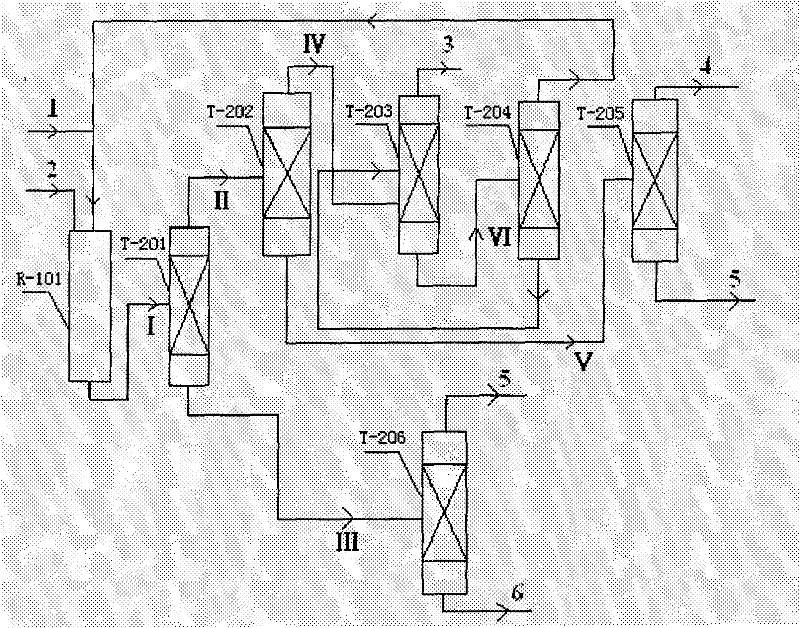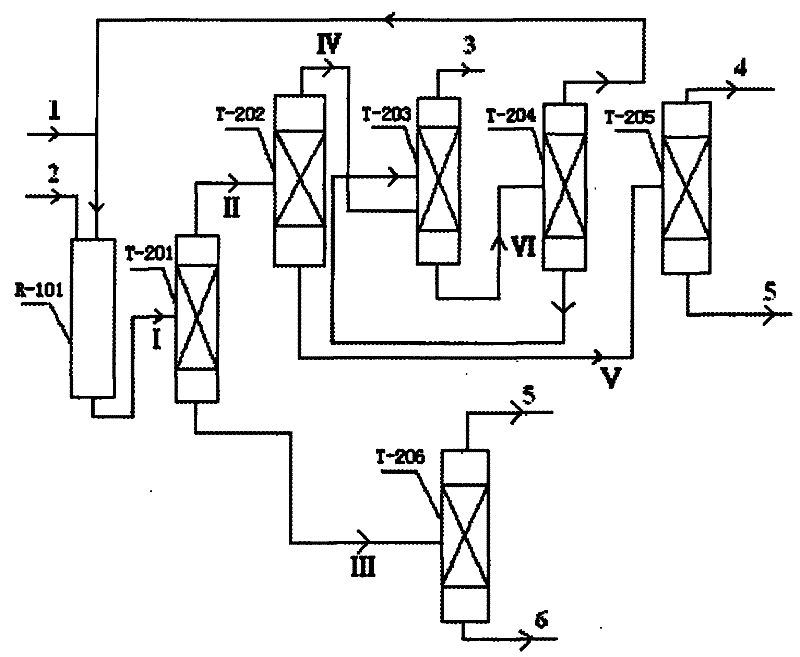Method for co-producing 1,2-epoxycyclohexane, α,α-dimethylbenzyl alcohol and cyclohexane
A technology of epoxy cyclohexane and dimethyl benzyl alcohol, which is applied in the field of co-production 1, can solve the problems of affecting the normal progress of the reaction, pollution of the production process, and affecting the reaction efficiency, so as to reduce acidity, improve product quality, and enhance hydrophobicity. sexual effect
- Summary
- Abstract
- Description
- Claims
- Application Information
AI Technical Summary
Problems solved by technology
Method used
Image
Examples
Embodiment 1
[0029] 30.0 kg of fumed silica was added to 48.0 kg of 25 wt% tetramethylammonium hydroxide aqueous solution, and continuously stirred for 30 minutes to form a solution. Subsequently, the above solution was added to a 120.0L aqueous solution containing 46.0kg of cetyltrimethylammonium bromide under stirring to form a transparent solution. Transfer the above mixed solution into a crystallization kettle, add 0.1kg MCM-41 as a seed crystal, and statically crystallize at 100°C for 3 days. The crystallized product is washed and filtered, dried at 100°C for 24 hours, and calcined at 550°C for 6 hours to obtain a catalyst carrier with MCM-41 structural characteristics. The powdered MCM-41 catalyst carrier prepared above is processed into strips with a diameter of 1.5 mm by using traditional extrusion molding technology, and then dried at 120°C for 12 hours and calcined at 550°C for 4 hours to obtain a shaped MCM-41 carrier.
[0030] Add 8.0kg TiCl in the reactor 4 Add the catalyst carr...
Embodiment 2
[0033] 30.0Kg of fumed silica was added to 48.0kg of 25wt% tetramethylammonium hydroxide aqueous solution, and continuously stirred for 30min to form a solution. Subsequently, the above solution was added to a 120.0L aqueous solution containing 46.0kg of cetyltrimethylammonium bromide under stirring to form a transparent solution. Under rapid stirring, slowly drop 4.8Kg of tetrabutyl titanate into the above mixed solution and continue stirring for 30 minutes. The above-mentioned mixed solution containing silicon and titanium was transferred into a crystallization kettle, 0.1kg Ti-MCM-41 was added as a seed crystal, and static crystallization was carried out at 100°C for 3 days to obtain a Ti-MCM-41 catalyst precursor.
[0034] Add 100L cumene solution containing 3.0kg 1,1,3,3-tetramethyldisilazane to another reactor, add 20.0kg of the catalyst precursor prepared above into the reactor, stir and reflux rapidly Then, the temperature was raised to 150°C and reacted at this temperat...
Embodiment 3
[0036] The Ti-MCM-41 catalyst was prepared according to the method of [Example 1], but the catalyst was not subjected to silanization treatment. XRD, N 2 The adsorption, FT-IR and UV-Vis characterization and analysis results show that the material has typical MCM-41 structural characteristics and Ti has entered the framework to form four-coordinate active titanium, in which the weight content of titanium is 3.7%.
PUM
| Property | Measurement | Unit |
|---|---|---|
| Pore volume | aaaaa | aaaaa |
| Specific surface area | aaaaa | aaaaa |
Abstract
Description
Claims
Application Information
 Login to View More
Login to View More - R&D
- Intellectual Property
- Life Sciences
- Materials
- Tech Scout
- Unparalleled Data Quality
- Higher Quality Content
- 60% Fewer Hallucinations
Browse by: Latest US Patents, China's latest patents, Technical Efficacy Thesaurus, Application Domain, Technology Topic, Popular Technical Reports.
© 2025 PatSnap. All rights reserved.Legal|Privacy policy|Modern Slavery Act Transparency Statement|Sitemap|About US| Contact US: help@patsnap.com


